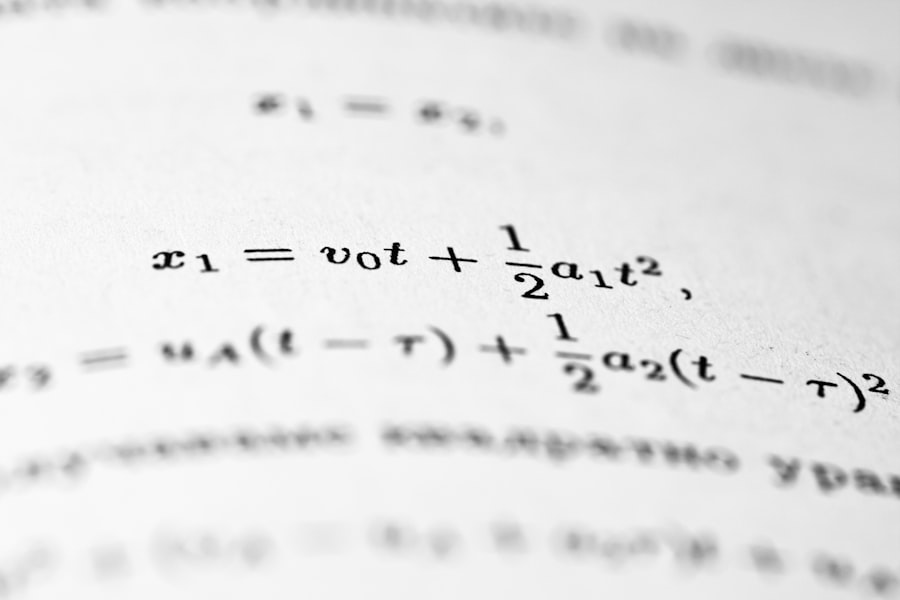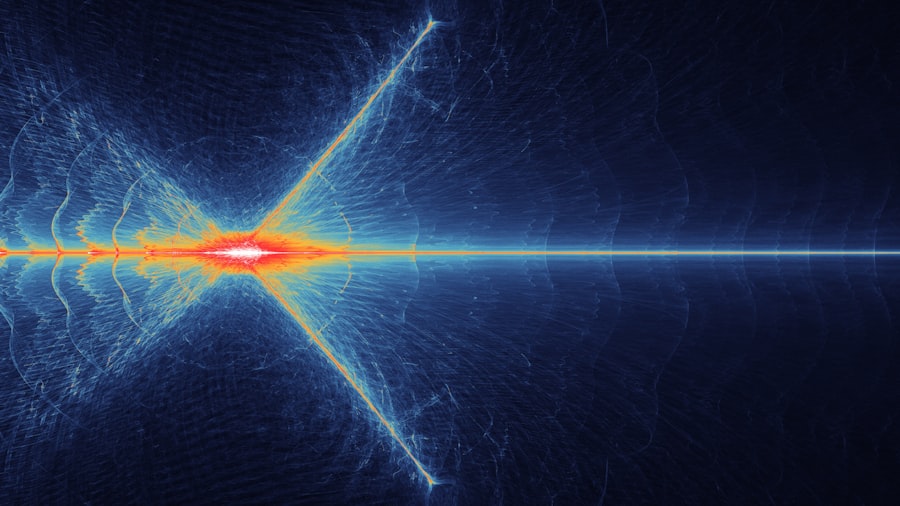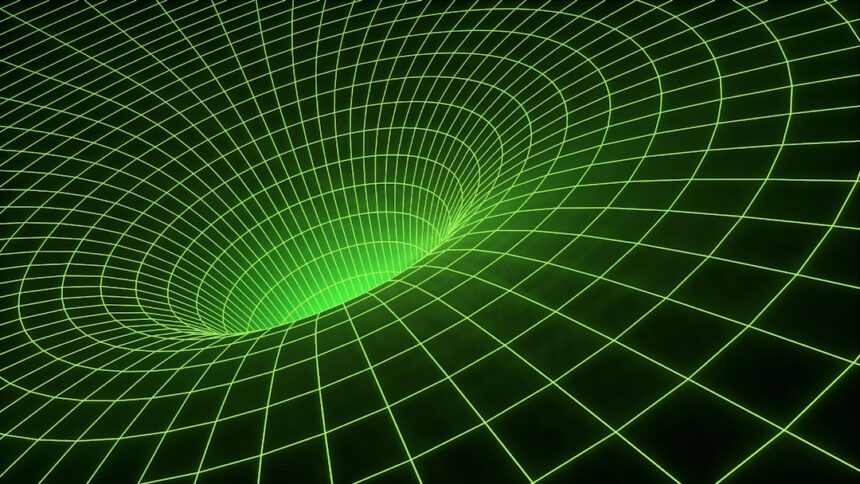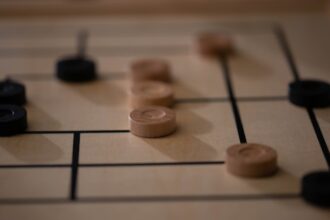The quantum measurement problem stands as one of the most perplexing challenges in modern physics, captivating the minds of scientists and philosophers alike. At its core, this problem revolves around the question of how and why the act of measurement affects the state of a quantum system. You may find yourself pondering why particles exist in a superposition of states until they are observed, collapsing into a definite state upon measurement.
This phenomenon raises fundamental questions about the nature of reality, observation, and the role of the observer in the quantum realm. As you delve deeper into this topic, you will uncover a rich tapestry of theories and interpretations that seek to explain this enigmatic aspect of quantum mechanics. Understanding the quantum measurement problem is essential for grasping the broader implications of quantum mechanics.
It challenges your intuition about how the world operates at a fundamental level, where particles can exist in multiple states simultaneously and only assume a specific state when measured. This paradox not only invites you to reconsider your understanding of reality but also opens up discussions about the nature of knowledge itself. As you explore this intricate subject, you will encounter various interpretations and proposed solutions that reflect the ongoing quest to reconcile the strange behavior of quantum systems with our classical understanding of the universe.
Key Takeaways
- The quantum measurement problem arises from the inability of quantum mechanics to provide a clear explanation of the process of measurement in the quantum world.
- Historical background of the quantum measurement problem traces back to the early 20th century with the development of quantum mechanics and the debates between prominent physicists like Niels Bohr and Albert Einstein.
- Different interpretations of quantum mechanics, such as the Copenhagen interpretation, many-worlds interpretation, and pilot-wave theory, offer varying perspectives on how to understand the nature of quantum measurement.
- The role of observation and measurement in quantum mechanics is central to the understanding of the quantum measurement problem, as it raises questions about the influence of the observer on the quantum system.
- Challenges and paradoxes in quantum measurement, such as the measurement problem, Schroedinger’s cat paradox, and the EPR paradox, highlight the complexities and unresolved issues in understanding quantum measurement.
Historical Background of the Quantum Measurement Problem
To appreciate the depth of the quantum measurement problem, it is crucial to examine its historical context. The roots of this issue can be traced back to the early 20th century when pioneers like Max Planck and Albert Einstein began to unravel the mysteries of atomic and subatomic phenomena. You may recall that Planck introduced the concept of quantization, suggesting that energy is not continuous but rather exists in discrete packets called quanta.
This groundbreaking idea laid the foundation for quantum theory, which would later evolve into a complex framework that defied classical physics. As you journey through history, you will encounter key figures such as Niels Bohr and Werner Heisenberg, who contributed significantly to the development of quantum mechanics. Bohr’s complementarity principle emphasized that particles exhibit both wave-like and particle-like properties, depending on how they are observed.
Meanwhile, Heisenberg’s uncertainty principle introduced a fundamental limit to how precisely we can know certain pairs of properties, such as position and momentum. These early developments set the stage for the measurement problem, as they highlighted the peculiar relationship between observation and the behavior of quantum systems. The historical evolution of these ideas reveals how physicists grappled with concepts that challenged their understanding of reality, ultimately leading to the formulation of the measurement problem.
Different Interpretations of Quantum Mechanics

As you delve into the quantum measurement problem, you will encounter a variety of interpretations that attempt to explain its implications. One prominent interpretation is the Copenhagen interpretation, which posits that physical systems do not have definite properties until they are measured. According to this view, the act of observation plays a crucial role in determining the state of a quantum system.
You might find it fascinating that this interpretation was championed by Niels Bohr and has been widely accepted for decades, yet it remains controversial due to its reliance on subjective observation. Another interpretation worth exploring is the Many-Worlds Interpretation (MWI), proposed by Hugh Everett III in 1957. This interpretation suggests that all possible outcomes of a quantum measurement actually occur, each in its own separate universe.
As you consider this perspective, you may be intrigued by its implications for reality and existence. In MWI, every time a measurement is made, the universe splits into multiple branches, each representing a different outcome. This interpretation challenges your understanding of probability and determinism in quantum mechanics, offering a radical departure from traditional views.
The Role of Observation and Measurement in Quantum Mechanics
| Concept | Explanation |
|---|---|
| Observation in Quantum Mechanics | The act of measuring a quantum system, which can affect the state of the system. |
| Measurement Problem | The challenge of understanding how measurement affects the quantum state and the interpretation of quantum mechanics. |
| Quantum Entanglement | The phenomenon where the quantum states of two or more particles become correlated and the measurement of one particle instantaneously affects the state of the others. |
| Uncertainty Principle | The principle formulated by Heisenberg, stating that certain pairs of physical properties, such as position and momentum, cannot be simultaneously known to arbitrary precision. |
Observation and measurement are central themes in quantum mechanics, fundamentally altering your perception of reality at microscopic scales. When you measure a quantum system, you are not merely observing it; you are actively participating in shaping its state. This interaction raises profound questions about what it means to observe something in the quantum realm.
You may wonder whether observation is merely a passive act or if it carries an intrinsic power to influence reality itself. The concept of wave function collapse is pivotal in understanding this relationship between observation and measurement. Before measurement, a quantum system exists in a superposition of states, described by its wave function.
However, upon measurement, this wave function collapses into a single state, seemingly dictated by chance. This process highlights the inherent unpredictability of quantum mechanics and challenges your classical intuitions about causality and determinism. As you explore these ideas further, you will come to appreciate how deeply intertwined observation and measurement are with the very fabric of reality.
Challenges and Paradoxes in Quantum Measurement
The quantum measurement problem is rife with challenges and paradoxes that continue to perplex physicists and philosophers alike. One notable paradox is Schrödinger’s cat, a thought experiment devised by Erwin Schrödinger to illustrate the strangeness of superposition and measurement.
If it decays, it triggers a mechanism that kills the cat; if it does not decay, the cat remains alive. Until you open the box to observe it, the cat exists in a superposition of being both alive and dead simultaneously. This paradox forces you to confront the implications of superposition and measurement on macroscopic objects.
Another challenge arises from the concept of decoherence, which explains how quantum systems interact with their environment, leading to apparent wave function collapse without direct observation. You may find it intriguing that decoherence provides a mechanism for understanding why classical behavior emerges from quantum systems. However, it does not resolve the fundamental question of what constitutes an observation or measurement in quantum mechanics.
These challenges highlight the complexity of reconciling quantum behavior with our everyday experiences and underscore the need for deeper insights into the nature of reality.
Proposed Solutions to the Quantum Measurement Problem

In response to the perplexities posed by the quantum measurement problem, various solutions have been proposed over the years. One approach is objective collapse theories, which suggest that wave function collapse occurs independently of observation due to intrinsic properties of quantum systems. You might find it interesting that these theories aim to provide a more objective account of measurement without relying on an observer’s consciousness or intervention.
Another proposed solution is the relational interpretation of quantum mechanics, which posits that properties of quantum systems are relative to observers or measuring devices. In this view, there is no absolute state; instead, states exist only in relation to other systems. This perspective challenges your understanding of objectivity in science and invites you to consider how knowledge is constructed through interactions between systems.
Quantum Entanglement and its Connection to Measurement
Quantum entanglement is another fascinating aspect that intertwines with the measurement problem. When two or more particles become entangled, their states become correlated in such a way that measuring one particle instantaneously affects the state of another, regardless of distance. You may find it astonishing that entangled particles can exhibit this behavior even when separated by vast distances—a phenomenon Einstein famously referred to as “spooky action at a distance.” Entanglement raises profound questions about locality and causality in quantum mechanics.
This phenomenon challenges your classical intuitions about how information is transmitted and raises questions about whether entanglement implies some form of non-locality or hidden variables at play in quantum systems.
The Role of Consciousness in Quantum Measurement
The role of consciousness in quantum measurement has been a topic of intense debate among physicists and philosophers alike. Some interpretations suggest that consciousness plays an active role in collapsing wave functions during measurement processes. You may find it intriguing that this idea has led to various philosophical discussions about the nature of reality and whether consciousness itself can influence physical processes.
However, this perspective remains controversial and has not gained widespread acceptance within the scientific community. Many physicists argue that consciousness should not be invoked as an explanation for quantum phenomena, emphasizing instead that measurements can be understood through objective processes without requiring conscious observers. As you explore this topic further, you will encounter diverse viewpoints on how consciousness intersects with quantum mechanics and what implications it holds for our understanding of reality.
Experiments and Observations in Quantum Measurement
Experimental investigations into quantum measurement have played a crucial role in shaping our understanding of this complex issue. One landmark experiment is the double-slit experiment, which demonstrates how particles can exhibit both wave-like and particle-like behavior depending on whether they are observed or not. When you observe which slit a particle passes through, it behaves like a particle; when unobserved, it behaves like a wave, creating an interference pattern on a screen behind the slits.
This experiment highlights the profound impact observation has on quantum systems and serves as a powerful illustration of the measurement problem. As you delve into more recent experiments involving entangled particles and Bell’s theorem tests, you will discover how these investigations continue to challenge classical notions of reality and reinforce the need for deeper insights into quantum mechanics.
Implications of Resolving the Quantum Measurement Problem
Resolving the quantum measurement problem carries significant implications for our understanding of reality and our place within it. If scientists can arrive at a coherent explanation for how measurements affect quantum systems, it could lead to breakthroughs in various fields such as quantum computing, cryptography, and even our understanding of consciousness itself. You may find it exciting to consider how advancements in this area could reshape technology and deepen our comprehension of fundamental physics.
Moreover, resolving this issue could bridge gaps between different interpretations of quantum mechanics, fostering collaboration among physicists with diverse perspectives. As you contemplate these possibilities, you will recognize that addressing the quantum measurement problem is not merely an academic exercise; it holds profound implications for our understanding of existence itself.
Future Directions in Quantum Measurement Research
As research into quantum measurement continues to evolve, several promising directions are emerging on the horizon. One area gaining traction is experimental investigations into new forms of wave function collapse theories that could provide testable predictions distinct from existing interpretations. You may find it fascinating that advancements in technology allow researchers to probe deeper into quantum phenomena than ever before.
Additionally, interdisciplinary approaches combining insights from physics, philosophy, and cognitive science are becoming increasingly relevant as researchers seek to understand consciousness’s role in measurement processes better. As you look ahead to future developments in this field, you will see how collaborative efforts across disciplines could yield transformative insights into one of science’s most enduring mysteries—the nature of reality itself. In conclusion, your exploration of the quantum measurement problem reveals a rich landscape filled with challenges, interpretations, and potential solutions that continue to captivate minds across disciplines.
As you engage with these ideas and consider their implications for our understanding of reality, you will appreciate how deeply intertwined observation and measurement are with our quest for knowledge about the universe we inhabit.
The quantum measurement problem is a fundamental issue in quantum mechanics that questions how and why the definite state of a system emerges from the probabilities described by a wave function. This conundrum has intrigued physicists and philosophers alike, as it challenges our understanding of reality and observation. For those interested in exploring the philosophical implications of such quantum phenomena, an insightful article can be found on the Unplugged Psych website. This piece delves into the intersection of psychology and quantum theory, offering a unique perspective on how these concepts might influence our perception of consciousness and reality. You can read more about these intriguing ideas by visiting Unplugged Psych.
FAQs
What is the quantum measurement problem?
The quantum measurement problem refers to the issue in quantum mechanics of how a measurement on a quantum system can lead to a definite outcome, even though the system is described by a wave function that evolves in a probabilistic manner.
Why is the quantum measurement problem important?
The quantum measurement problem is important because it raises fundamental questions about the nature of reality and the role of the observer in quantum mechanics. It also has implications for the interpretation of quantum theory and the development of quantum technologies.
What are some proposed solutions to the quantum measurement problem?
Some proposed solutions to the quantum measurement problem include the Copenhagen interpretation, the many-worlds interpretation, and the objective collapse theories. Each of these interpretations offers a different perspective on how to understand the measurement process in quantum mechanics.
How does the quantum measurement problem relate to quantum computing?
The quantum measurement problem is relevant to quantum computing because it raises questions about how quantum systems can be manipulated and measured to perform computational tasks. Understanding the measurement process in quantum mechanics is crucial for the development of quantum algorithms and quantum information processing.
What are the implications of the quantum measurement problem for our understanding of the nature of reality?
The quantum measurement problem has profound implications for our understanding of the nature of reality, as it challenges traditional notions of determinism and objective reality. It suggests that the act of measurement may play a fundamental role in shaping our experience of the physical world.




